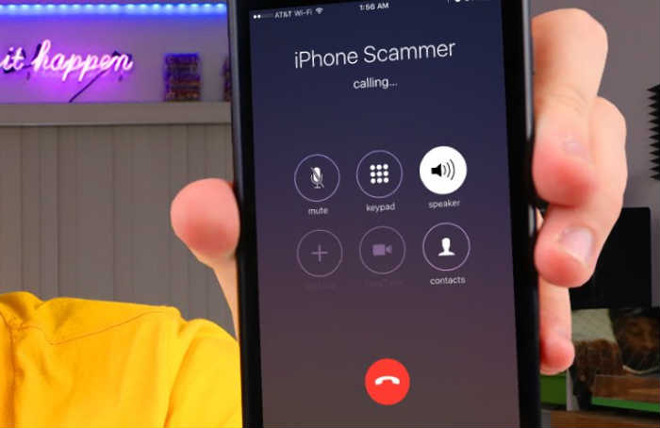US Senate greenlights anti-robocalling bill to combat 'daily deluge'
The U.S. Senate voted 97 to 1 on Thursday to move forward with the TRACED Act, intended to fight a surge of robocalls, in some cases harassing people multiple times per day.

The legislation would create an interagency task force, hike fines the Federal Communications Commission can level against offenders, and extend the statute of limitations on penalties, The Verge said. The bill was introduced by Senators John Thune (R-SD) and Ed Markey (D-MA).
Perhaps most significantly the bill would pressure U.S. carriers to deploy call authentication systems such as STIR/SHAKEN. That technology marks genuine callers as "verified," allowing people to block or ignore anyone else.
The U.S. was bombarded with some 48 billion robocalls in 2018. The problem has become epidemic, particularly with the rise of "neighbor" scams that disguise calls as coming from a person's local area code.
iPhones already have call blocking and ID features as of iOS 10, and other countermeasures are available, but the former require downloading third-party apps and aren't 100 percent effective. Apple is working to bring STIR/SHAKEN to iPhones in the future.
The TRACED Act will still have to survive the House of Representatives to become law. There are already a variety of other anti-robocalling bills awaiting votes.

The legislation would create an interagency task force, hike fines the Federal Communications Commission can level against offenders, and extend the statute of limitations on penalties, The Verge said. The bill was introduced by Senators John Thune (R-SD) and Ed Markey (D-MA).
Perhaps most significantly the bill would pressure U.S. carriers to deploy call authentication systems such as STIR/SHAKEN. That technology marks genuine callers as "verified," allowing people to block or ignore anyone else.
The U.S. was bombarded with some 48 billion robocalls in 2018. The problem has become epidemic, particularly with the rise of "neighbor" scams that disguise calls as coming from a person's local area code.
iPhones already have call blocking and ID features as of iOS 10, and other countermeasures are available, but the former require downloading third-party apps and aren't 100 percent effective. Apple is working to bring STIR/SHAKEN to iPhones in the future.
The TRACED Act will still have to survive the House of Representatives to become law. There are already a variety of other anti-robocalling bills awaiting votes.

Comments
Did note vote: Inhofe (R-OK), Rounds (R-SD)Voted NAY: Paul (R-KY)
I just looked it up. It was Rand Paul, which is who I suspected. I don't think he's made a statement on it yet, but he will often vote against things based on his views on government power.
The FCC already has the ability to penalize robocallers, and all this does is increase the penalties. The FCC has been completely ineffective, and raising civil penalties will do nothing because robocallers are often foreign entities, can't be located, or couldn't care less about civil penalties.
In addition, the bill:
- does not require carriers to implement STIR/SHAKEN for 18 months, giving robocallers plenty of time to find a workaround
- gives carriers a means to obtain exemptions and extension to STIR/SHAKEN implementation
- does not provide for private right of action against robocallers, which means FCC is the only means of enforcement
- does not impose any criminal penalties for spoofing a phone number, nor criminalize robocalls
- does not require carriers to give consumers the means to block anonymous calls
- does not fix any of the existing problems with the Do Not Call List
What Congress should have done is give consumers the right to sue scumbags who send unsolicited texts and make unsolicited calls, require carriers to immediately give consumers the ability to block anonymous or fake numbers, and criminalize violations of the Do Not Call list. But that will never happen.Yeah I get these calls every single day. Multiple calls a day. Often with my local area code and even some variation of my own number. I have ATT’s Call Protect service but it doesn’t help much. It also incorrectly blocks merchants I want to call me, like Capital One and Apple.
I don’t even answer the phone now unless it’s a contact.
Not a very helpful bill, wouldn’t want to upset or inconvenience the carriers.